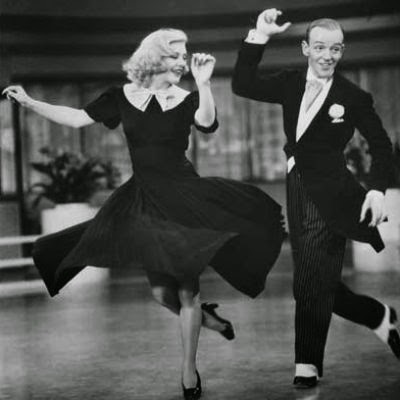Artist: Fred Astaire
Date: 1927 (written), 1930 (sung)
Link: https://vimeo.com/6971656
Victoria's summary:
This song was written in the 1920's, so even though it was not performed until the 1930's, it still showcased themes and styles from the "Roaring Twenties". It was very well liked because it was a fast paced song, which was extremely popular at the time. It has a "ragtime" undertones, which continued to increase in popularity in the 20’s. It is also very jazzy, which is the type of music which was most popular during this era. Those who did not have as much money (working class) tended to hear this type of music in “speakeasies” or in movies. It was mot definitely intended for people to dance to. In the video for the song, Fred Astaire can be seen tap dancing to the beat. However, the Charleston was a very popular dance during this time as well. The overall intention of the song was to get people up and moving. Whether young or old, rich or poor, man or woman; this was a song that got your feet tapping to the beat.
SOURCE: http://en.wikipedia.org/wiki/Puttin%27_On_the_Ritz
Haille's summary:
For my role as contextualizer in our presentation, I first discussed how “Puttin’ on the Ritz” by Fred Astaire related to the atmosphere of the 1920’s in many ways. I spoke about how the song became popular around the same time that dances such as The Charleston were becoming popular, because the song has a good, upbeat rhythm and was easy to dance too. I also talked about how the song relates to all the flashy clothing and underground drinking parties were occurring, because the song lyrics look at these ideas. The lines that talk about wearing million dollar suits to look like Gary Cooper, who was a famous actor at the time, directly correlates to the parties and flashy clothing. The next thing I talked about during my part of the presentation was how the lyrics tended to the social class gap that was happening in the 1920’s, which the rich not really caring about the poor and staying in fancy hotels such as the Ritz Carlton. Some of the lyrics that go along with this idea is when he sings about “mixing with the Rockefellers” and walking with “sticks and umbrellas”.
SOURCES: http://en.wikipedia.org/wiki/Puttin%27_On_the_Ritz
Jordan's summary:
Throughout the 1920s, one
thing that became very popular was dance especially with the younger
generation. The Charleston, the cake walk, and the flea hop to name a few were
considered vulgar and moral disasters by the older generation. This relates to
the class topic because a major thing that people associate the 1920s with is
prohibition, the new woman - the flapper, and “Gatsby” like parties -- all
considered to be morbidly immoral. This also related immensely to Middletown
because of the new technologies and machines that changed the way to nuclear
family worked. Even though this song wasn’t released to the public in the 1930s
it could be considered a reflection of the 1920s era. Irving Berlin was not
above taking the proverbial poke at the upper class of the day like the
Rockefellers. This is similar to “Yankee Doodle Dandy” making fun of the
Americans. The title derives from the slang expression putting on the ritz
meaning to dress very fashionably inspired from the Ritz hotel “assuming the
air of superiority”. The lyrics in this song reference a lot of the major
events that occurred throughout the 1920’s with lines like with their noses in the air and spending
every dime for a wonderful time, which illuminates the dramatic social and
political changes of the era. During the years from 1920 – 1929 the nation’s
wealth doubled and this growth swept many Americans into an affluent “consumer
society”. Also, the first line of the song talks about Lenox Avenue, which is
the primary north to south route from Upper Manhattan to Harlem and the
refrain, was most likely referencing the Great Migration and the popularity in
jazz and blues in Harlem. The discussion was quite short, although it included some important information. The question itself was "How do you think the rich would have reacted to this song? Do you think they would have been offended, or do you think it would simply boost their egos?". No one seemed to have a definite answer, but I gave my opinion on the matter. I stated that I believed the lyrics were not really thought about. Since this song was meant for dancing, most people probably just paid attention to the beat.
SOURCE: http://www.history.com/topics/roaring-twenties
(The Charleston)
(Fred Astaire performing a tap dance and singing "Puttin' on the Ritz)


No comments:
Post a Comment